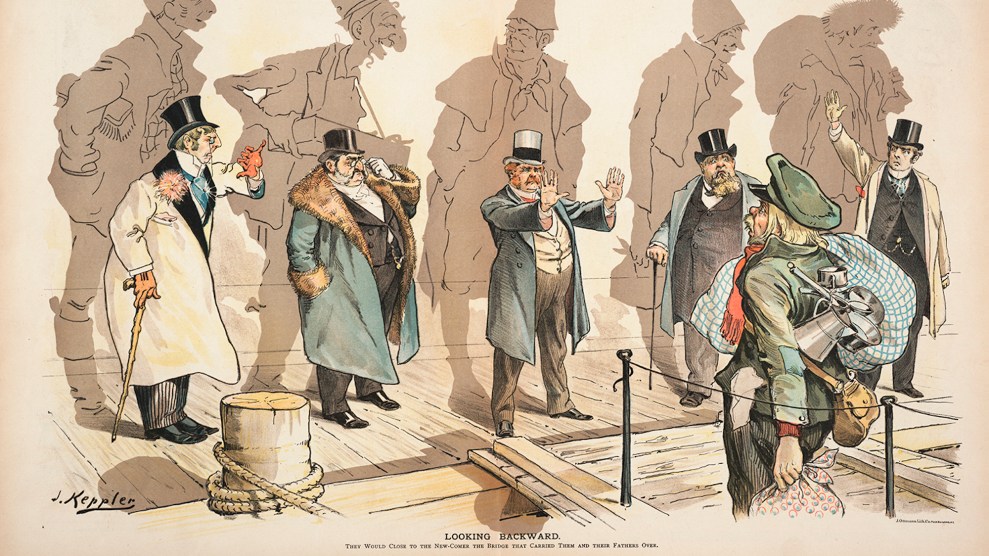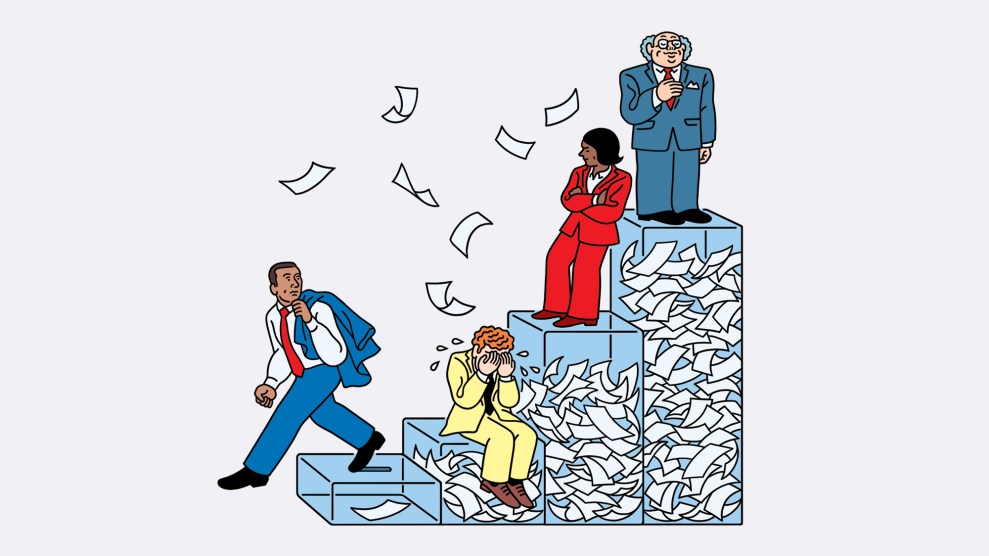
An 1893 cartoon titled "Looking Backward" depicts the irony of American immigrants turning away additional newcomers. The caption reads: "They would close to the new-comer the bridge that carried them and their fathers over."Billy Ireland Cartoon Library & Museum at the Ohio State University
In a written decision filled with unmasked contempt, a federal judge blocked on Friday a Trump administration policy designed to punish poor and working-class immigrants. The “public charge” rule, which was set to take effect on Tuesday, would deny green cards to immigrants deemed likely to use public benefits, to which they are legally entitled.
District court judge George Daniels was unusually critical of the arguments the Justice Department used to justify radically reinterpreting what it means to be a public charge, a part of federal immigration law that dates back to 1882. “In short,” Daniels wrote, “defendants do not articulate why they are changing the public charge definition, why this new definition is needed now, or why the definition set forth in the Rule—which has absolutely no support in the history of U.S. immigration law—is reasonable.” (A California district judge court issued a second injunction on Friday that, unlike Daniels’, does not apply nationwide.)
Daniels wrote that the rule released by the Department of Homeland Security in August “is simply a new agency policy of exclusion in search of a justification.” He continued, “It is repugnant to the American Dream of the opportunity for prosperity and success through hard work and upward mobility.”
The public charge rule could deny green cards to hundreds of thousands of immigrants and may wind up being the Trump administration’s most significant attack on legal immigration. Immigrants without permanent residency are already ineligible for most forms of public assistance. Instead, the rule targets people immigration officials decide are likely to use benefits in the future for 12 months of a 36-month period. They are directed to make that decision based on factors including an immigrant’s age, income, health, education, and credit score. It’s still not clear how that would work in practice.
Congress has made clear that permanent residents are eligible to receive public benefits, usually after they’ve had green cards for five years. Daniels argued that it makes no sense to punish immigrants for being likely to use those benefits. “Under the Rule, although this individual is legally entitled to public housing, if she takes advantage of this right, she may be penalized with denial of adjustment of status,” he concluded. “There is no logic to this framework.” Daniels made clear that the new standard would cause significant harm, writing, “Overnight, the Rule will expose individuals to economic insecurity, health instability, denial of their path to citizenship, and potential deportation.”
The judge was particularly critical of a section of the rule that penalizes immigrants who do not speak English. “The United States of America has no official language,” Daniels noted. “Many, if not most, immigrants who arrived at these shores did not speak English. It is simply offensive to contend that English proficiency is a valid predictor of self-sufficiency.”
Earlier on Friday, the White House sent out a press released titled, “Activist Judicial Rulings Block the Administration From Enforcing Our Nation’s Immigration Laws.” Now it has one more decision to add to the list.
















